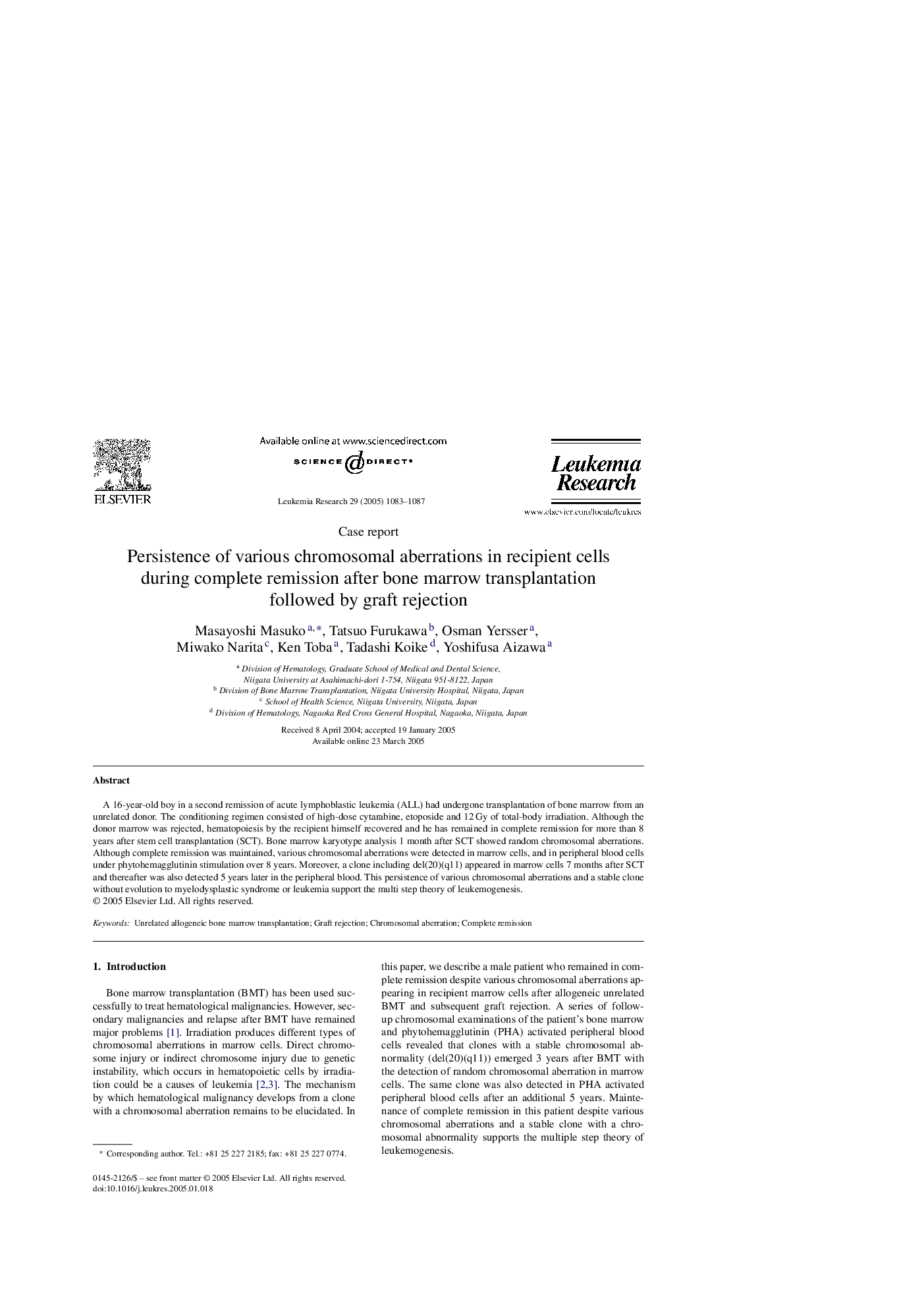| Article ID | Journal | Published Year | Pages | File Type |
|---|---|---|---|---|
| 10909790 | Leukemia Research | 2005 | 5 Pages |
Abstract
A 16-year-old boy in a second remission of acute lymphoblastic leukemia (ALL) had undergone transplantation of bone marrow from an unrelated donor. The conditioning regimen consisted of high-dose cytarabine, etoposide and 12Â Gy of total-body irradiation. Although the donor marrow was rejected, hematopoiesis by the recipient himself recovered and he has remained in complete remission for more than 8 years after stem cell transplantation (SCT). Bone marrow karyotype analysis 1 month after SCT showed random chromosomal aberrations. Although complete remission was maintained, various chromosomal aberrations were detected in marrow cells, and in peripheral blood cells under phytohemagglutinin stimulation over 8 years. Moreover, a clone including del(20)(q11) appeared in marrow cells 7 months after SCT and thereafter was also detected 5 years later in the peripheral blood. This persistence of various chromosomal aberrations and a stable clone without evolution to myelodysplastic syndrome or leukemia support the multi step theory of leukemogenesis.
Related Topics
Life Sciences
Biochemistry, Genetics and Molecular Biology
Cancer Research
Authors
Masayoshi Masuko, Tatsuo Furukawa, Osman Yersser, Miwako Narita, Ken Toba, Tadashi Koike, Yoshifusa Aizawa,
